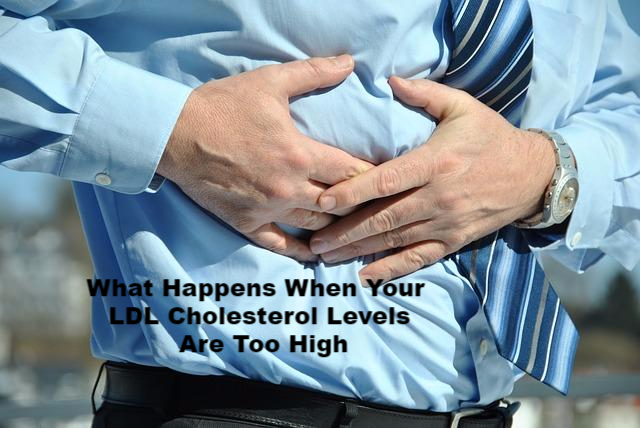What Happens When Your LDL Cholesterol Levels Are Too High
Most of the waxy cholesterol found in your body is made by your liver, the rest comes from what you eat. In addition, cholesterol travels through your bloodstream as packets called lipoproteins.
Not to mention, there is the bad LDL cholesterol and the good HDL cholesterol. LDL can build up in your arteries, while HDL helps to remove excess cholesterol from your body.
Your body needs cholesterol to make digestive fluids and hormones. Yet, too much LDL cholesterol can increase your risk for heart disease and stroke.
Continue reading to learn more.
Affects Your Endocrine System
Hormones may affect your cholesterol levels. During a woman’s menstrual cycle, HDL cholesterol levels rise and LDL levels decrease. Furthermore, estrogen levels rise.
After menopause, estrogen levels decrease. This means there is a larger risk for heart disease. Yet, one of the most effective treatments for high cholesterol is Lipitor. It is a statin that blocks the production of cholesterol in the body. It also reduces LDL cholesterol. Lipitor is not only used to lower your LDL cholesterol but it is also used to prevent the hardening of the arteries and heart disease.
Artery Health
When your body has too much LDL cholesterol, it can build up and harden your arteries. This is called atherosclerosis. Since your blood can’t flow freely, your heart has to work harder.
If this continues, you can develop heart disease. Plus, plaque buildup can block the flow of oxygen-filled blood to your heart. As a result, you may experience chest pain called angina. While this isn’t a heart attack, it can be a warning. You see, a piece of plaque may fall off and create a clot. This clot can then block blood flow to your heart, which leads to a heart attack or to your brain, which leads to a stroke.
It Harms Your Nervous System
The brain houses about 20 percent of your body’s cholesterol levels. It is used to protect nerve cells. Your brain needs some cholesterol. But, too much can be harmful. For example, a disruption of blood flow to the brain can lead to strokes, memory loss, and hampered movement. High cholesterol also increases the creation of beta-amyloid plaques which damage the brain.
Stomach Pain
With advanced stages of high cholesterol can come stomach and abdominal pain. High cholesterol can lead to fatty deposits in your liver and spleen. When you have an enlarged liver or spleen, it can contribute to unexplained abdominal pain. Yet, the cause of the pain may not be easily determined without multiple tests. Not to mention, chronic pain can negatively affect every aspect of your life.
In Conclusion
Your body needs cholesterol, but it is important to decrease high levels of LDL cholesterol which can harden your arteries leading to a heart attack or stroke.
Not to mention, your diet and lifestyle can play a significant role in your cholesterol levels. Don’t forget to take medication as prescribed to keep your LDL levels down to a manageable level.
…..

